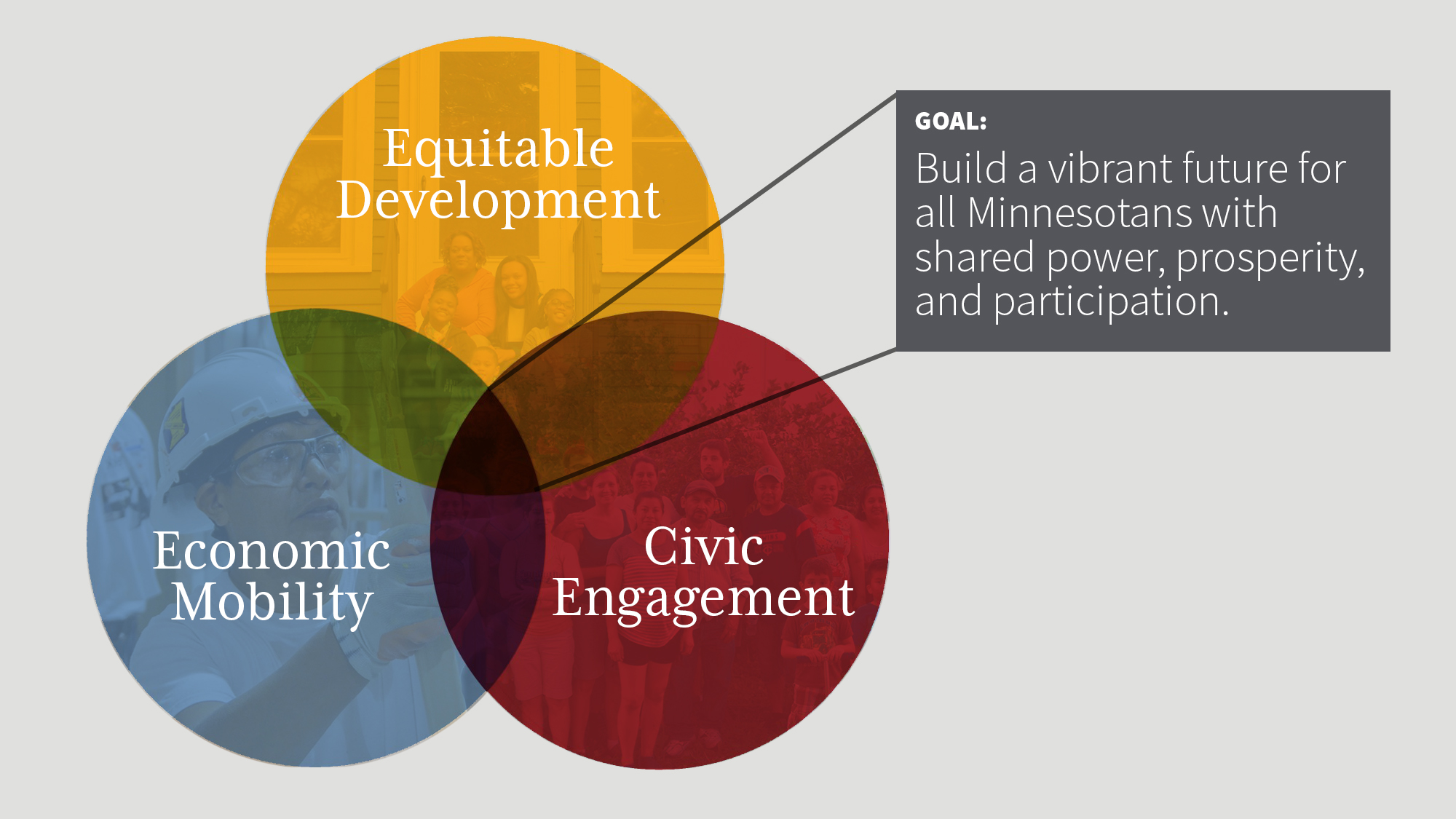Economic Mobility
McKnight believes that all Minnesotans will do better if we close our racially based economic gaps. In focusing on economic mobility, we aim to ensure that low-wealth communities, Indigenous people, and communities of color participate and share in our state’s social, cultural, and economic assets, while also strengthening Minnesota’s economic competitiveness. To accomplish this, we will work to eliminate racial and other gaps in income, housing, education, and wealth. Specific projects may include growing new jobs that support families, building a more skilled workforce, investing in a strong base of entrepreneurs and small business owners, and increasing equitable access to education.
Equitable Development
For much of Minnesota’s history, policies and practices have led to inequities by disinvesting in low-wealth communities, Indigenous people, and communities of color. Achieving equitable development would mean that all Minnesotans have an opportunity to:
- live in healthy, safe communities;
- connect to economic, social, and cultural opportunities; and
- use their voice to influence decisions that shape where they live.
Advancing equitable development may include efforts to preserve and produce affordable housing; to ensure low-wealth, Indigenous, immigrant communities, and communities of color have influence over local decisions; and to embed equitable practices within public infrastructure investments.
Civic Engagement
As communities across Minnesota continue to change, residents are seeking ways to connect with one another, build bridges across lines of difference, solve problems, and create opportunities to address inequality and foster prosperity. While Minnesota has many innovative initiatives that address racial and economic inequality, these efforts have typically taken place in isolation. To make real progress, we need multigenerational, multiracial, multi-sector, and multi-issue civic leaders who can coordinate efforts to build shared power, prosperity, and participation across Minnesota.
A strong civic infrastructure would support communities in coming together around common values and interests. Such civic engagement would enable communities to define, act upon, and achieve shared purpose. It could also support a more inclusive and representative democracy; a new generation of public leaders; and stronger, values-based narratives that elevate our communities’ common interests.
